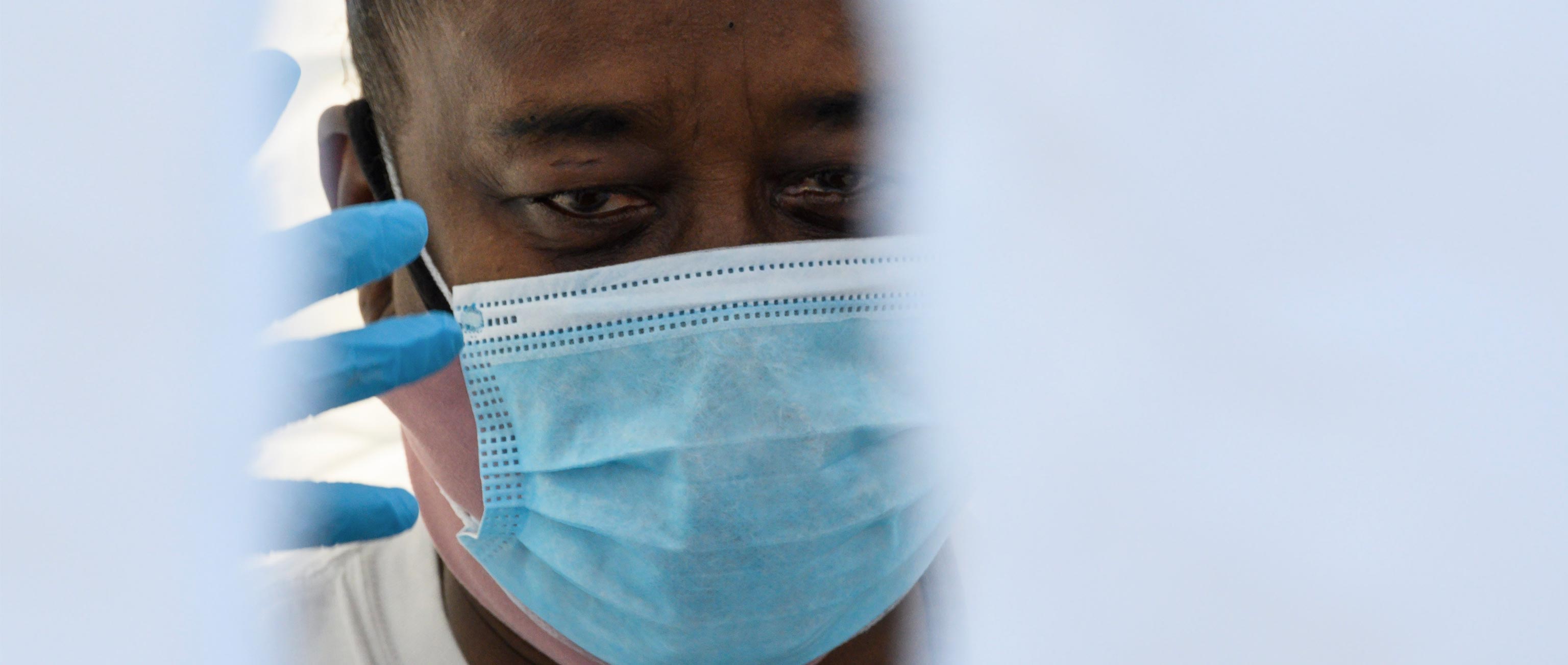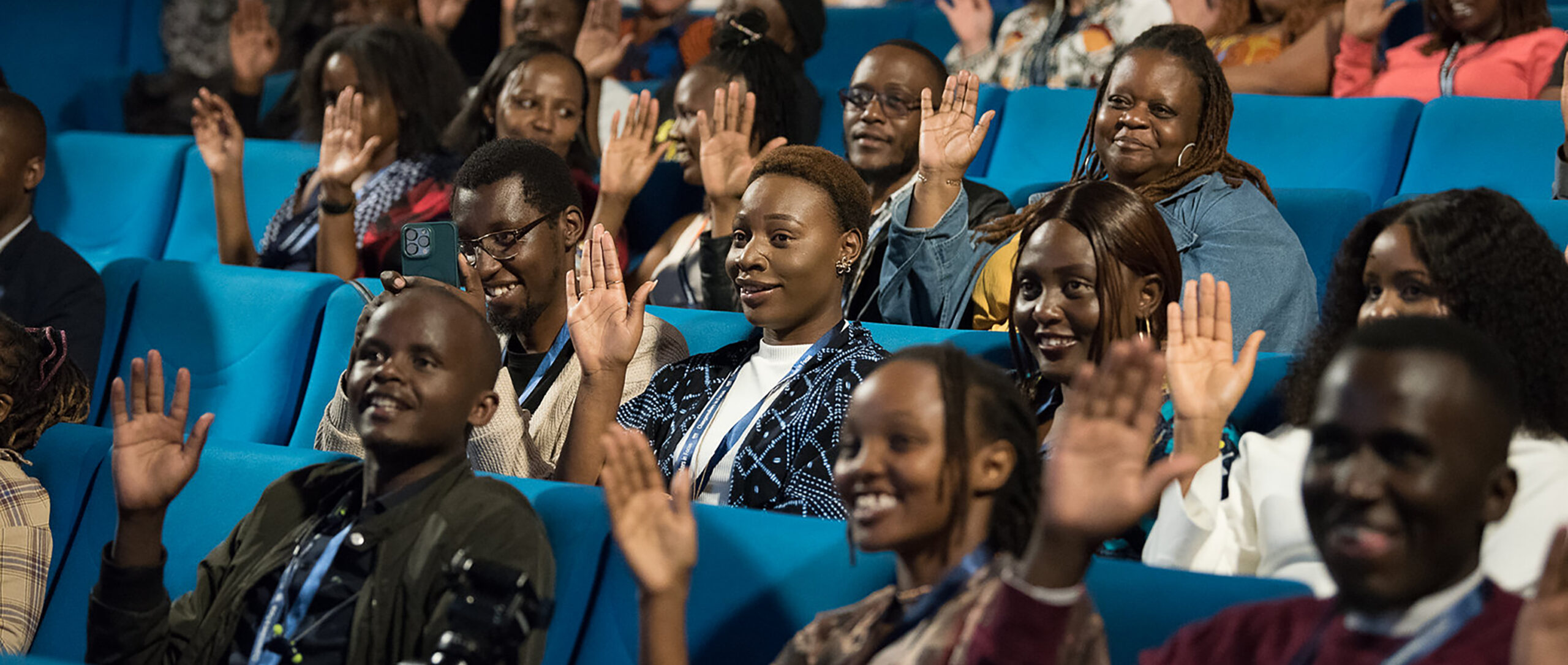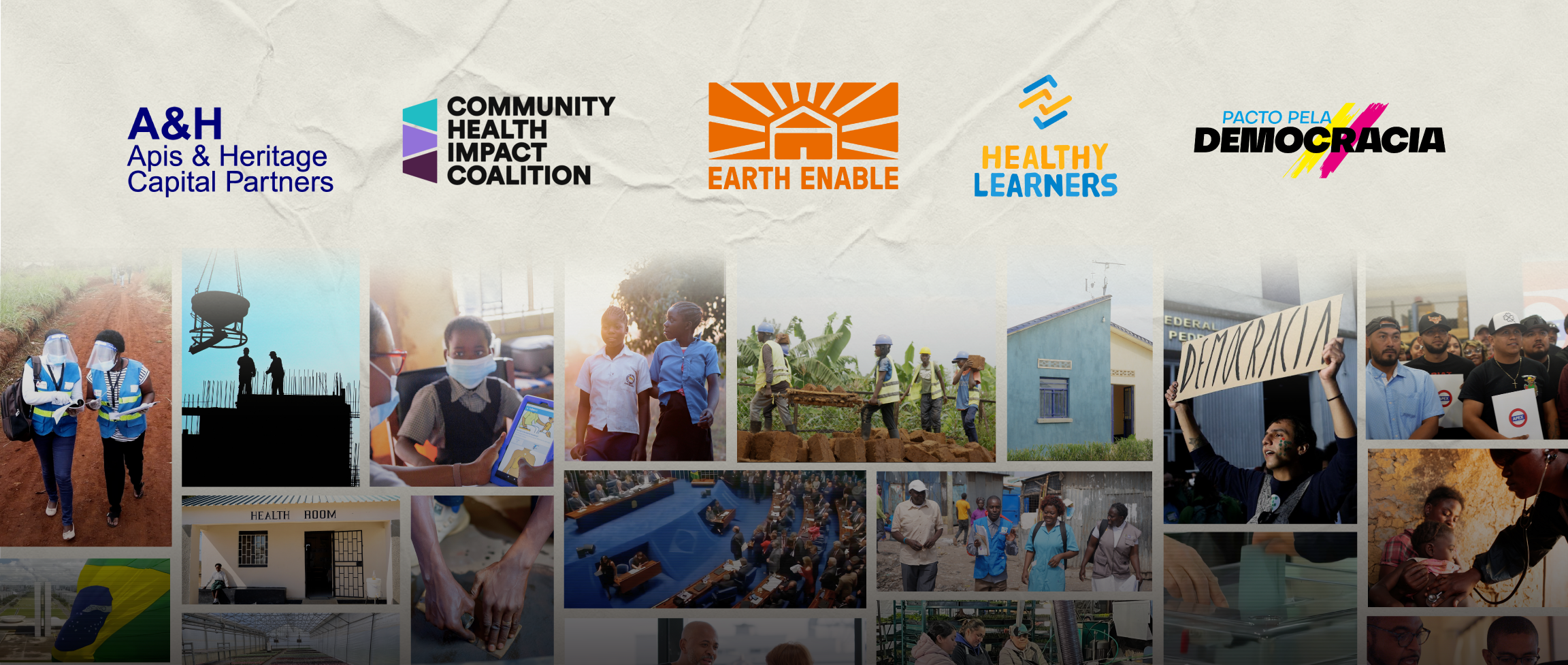The Color of COVID-19: Disparate Impact, Inequitable Response
“We may be in the same storm, but we are not in the same boat,” Don Gips, Skoll Foundation CEO, said as he convened a recent town hall discussion, The Color of COVID. Bringing together leading researchers, activists, and social innovators working at the intersection of racial justice and the COVID-19 pandemic, the panelists discussed and illuminated the disparate health outcomes deeply rooted in structural racism and historic injustices. As Gips pointed out, the pandemic has exposed the inequities and weakness of unjust and unsustainable systems particularly in the U.S.
Poet Darius Simpson set the tone with a rousing poem he created for the event.
Cheryl Dorsey, President of Echoing Green, and a new member of the Skoll Foundation Board, moderated the first half of the discussion. Dorsey framed the discussion by quoting professor of history and history of medicine, Frank Snowden. “To study pandemics is to understand a society structure, its standard of living, its political priorities,” he said. “The disproportionate impact of COVID-19 on people of color, the higher burdens of cases and deaths, is an indictment and one that elucidates the impacts of structural racism on communities of color.”
Dr. Mary Bassett, director of the FXB Center for Health and Human Rights at Harvard University, elaborated on that statement, citing the Center’s own research that indicated that “among black people between the ages of 35 and 44 our research shows a nine-fold increased risk of death.” Dr. Bassett underscored one of the structural problems of getting reliable data during the pandemic, “an indictment of what’s happened to our public health authorities. The CDC has been effectively muzzled. The data weren’t available by race from the federal government.” Instead Dr. Bassett pointed out, the best sources of data during the pandemic came from journalists, particularly the print media.
Dr. Eric Brodt, a tribal health and family practice doctor who provides in-patient medicine at Oregon Health and Science University, works on the front lines at a tribal health clinic in rural Oregon. His work affords a particularly close perspective on what he calls “a crisis within a crisis.” As Dr. Brodt pointed out, “Our communities have faced tremendous challenges in the past, whether it’s been colonization, whether it’s been acts of genocide or whether it’s been epidemics and pandemics. COVID in that sense has also been a painful reminder of the things that our ancestors went through, particularly the invisibility of indigenous people when it comes to having COVID.”
COVID Behind Bars
Khalil Cumberbatch, director of the Council on Criminal Justice, outlined recommendations on how the criminal justice system could to respond to COVID-19. “One is to go beyond the CDC guidance to stop exponential growth of COVID-19 within the criminal justice system, essentially making the CDC guidance the floor as opposed to the ceiling. Second, communicate transparently about COVID-19 response plans, policies, and data. Third, adopt universal masking requirements for all staff and impacted population when indoors and in close contact with others. Four, widely and frequently test staff in justice-involved populations for COVID-19 using the most reliable methods available. Fifth, limit contact, maximize distance, and reduce density. And last, but certainly not least, actively engage and consider impacted communities in all decision-making processes.”
Impact on Latinx Communities
Sonia Perez,COO of UnidosUS, the nation’s largest Latino civil rights and advocacy organization, addressed structural inequalities impacting the Latinx population. Beyond health, Perez pointed out, “it’s housing, it’s economic and employment opportunities, it’s education.
We are not surprised, frankly, having seen the impact of COVID on the Latino community. We’re about 19 percent of the US population and yet about 37 percent of COVID cases nationwide are among Latinos, among children in particular.”
Perez also illuminated positive work being done on the South side of Chicago, by Esperanza Health Centers which early on used a data-based and driven approach, tracking the positivity rate, and testing in order to reduce infection spread. Perez spotlighted the innovative leadership of the Hispanic Center of Reading, PA where 90 percent of the kids are Latino, lack reliable access to the internet, and lack the digital devices required for remote learning. UnidosUS coordinated a conversation between Comcast Reading, the Reading School District, and the Hispanic Center of Reading. 10,000 students now have access to the internet and to these devices.
Impact on Asian-American Communities
Discussing the impact of COVID on the Asian American population, Cynthia Troy, at Chinese for Affirmative Action, shared a grim statistic: in San Francisco, over half of the deaths are Asian. “We also see that with Asian American workers working in the hospitality industry, retail and so forth, that they’re not only losing their jobs, but they are also facing discrimination and attacked while being essential workers,” she said.
Troy cited 2,700 reported incidents of verbal attack, physical attack, and discrimination in the workplace and in private businesses. As part of the Stop AAPI Hate campaign, Troy focuses on community-based efforts to address safety, justice, and the root causes of violence.
Innovators Respond to the Pandemic
Ernest Boykin, a criminal justice reform advocate who works in partnership with Families Against Mandatory Minimums, made the pandemic personal when he explained that coming out of prison on compassionate release was “like waking up from a coma.” Though free now, Boykin still feels constrained. He’s having trouble getting an ID with the DMVs slowed down because of the pandemic. “Without an ID, you can’t really have healthcare, you can’t drive, you can’t do anything,” he said. What’s worse than the systems impacted by COVID-19, Boykin says, is the inability to see family and loved ones.
Dr. Olajide Williams, Founder of Hip Hop Public Health, works to address the powerful cognitive and emotional components of behavior change within black communities. “We need to get to a place where healthy behavior needs to become the easiest behavior or the default behavior,” he said. As part of that effort, Williams has designed a culturally tailored health education approach that uses hip hop across that focuses on young people of color.
Monique Tula at the National Harm Reduction Coalition, which addresses harms around substance abuse and addiction, pointed out that syringe service programs are an example of a harm reduction public health strategy, but aren’t recognized as essential services in some places. In a recent survey on the impact of COVID-19 on syringe service programs in the US, nearly all respondents noted that policy makers and leaders didn’t include syringe service programs in jurisdictional emergency planning and response. “This is essentially the erasure of people who use drugs,” she said. “COVID has really exposed some of the structural violence that we’ve all been living under.”
Nathaniel Smith, Founder of Partnership for Southern Equity in Atlanta, Georgia, worked to create a COVID-19 fund to support individuals in the regional southeastern United States, grappling with the economic, health, and housing impacts of the virus. Smith pointed out that poor southerners have experienced a “history of the stripping of humanity and its role in creating an economy that is not healing. And we have to find a way to move forward to create an economy that looks at everyone as an asset and no one as a liability.” Smith says that those closest to the problem are closest to the solution. “That mindset helped create an alternative way to get money to black-led organizations on the ground with minimal budgets because they are closest to the people who need the money the most,” said Smith.
Kim Gallon at Purdue University is the Founder of COVID Black, a taskforce on Black health and data. “COVID Black started off trying to get people on the ground to call on their health departments,” said Gallon. “It has since evolved into a nonprofit and data analytics firm that looks at black health data. We work at the intersection of race, health data information, and social justice. We redefine quantitative data and we turn it into what we call living data and data stories about black health.”
COVID Black has collected the largest data set of stories of Black people killed by COVID-19. To make that data come alive, Gallon’s team has created an interactive visualization set to launch December 1. “This will allow people to see the different patterns of black people’s lives who have passed away from COVID-19, but more importantly, to give black communities a way to connect to the loved ones that they’ve lost by being able to engage in their stories,” she said.
In conclusion Jimmie Briggs, Skoll Foundation Principal, pointed out how COVID has “radicalized” our response to social issues, including widening the narrative to what is happening to communities of color, the Black Lives Matter movement, de-carceration, and in academic health centers. As Perez underscored, widening the narrative is critical: once we begin looking at issues of equity, we broaden the entire frame of reference. “The conversation no longer focuses only on our communities of color,” said Briggs. “It’s about creating the country that we want and how we all benefit from that.”
Or to paraphrase Dr. Bassett: “Structural problems need structural solutions.”
Want more stories of transformational change on the world’s most pressing problems? Sign up for Skoll Foundation’s monthly newsletter.



